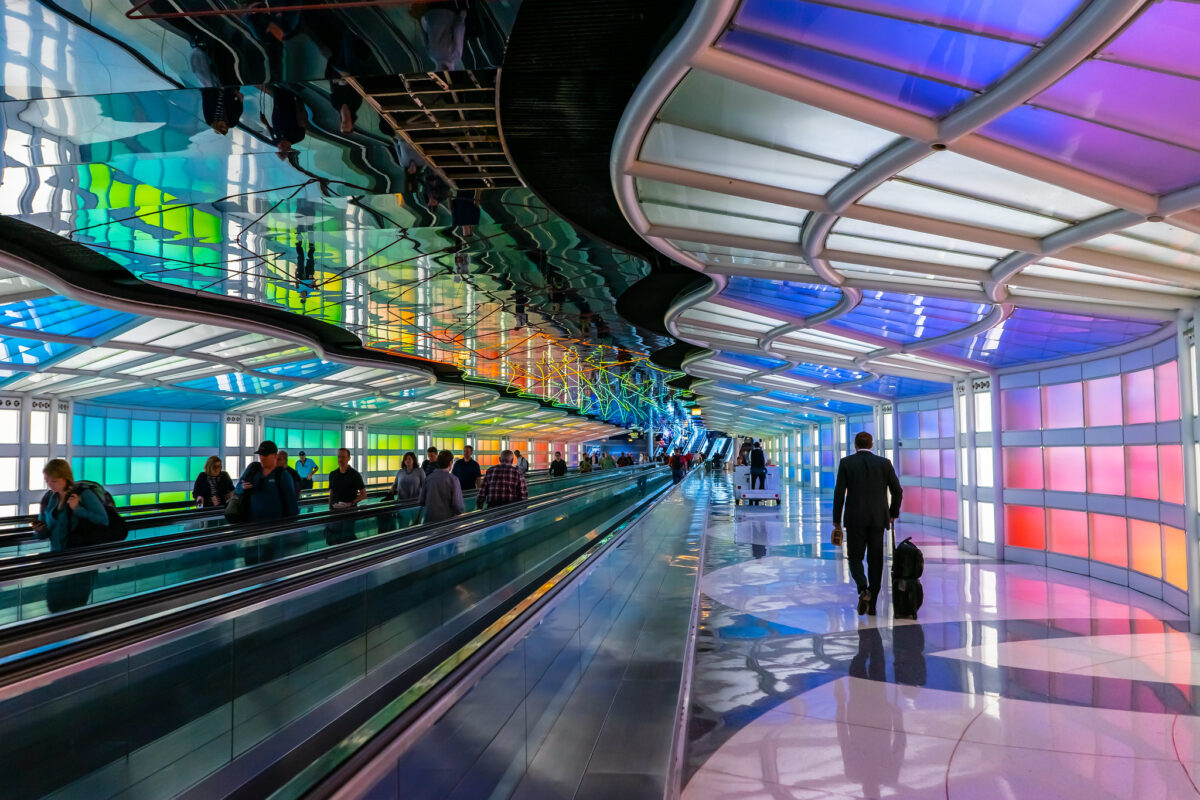Here's How AI Can Help Fix Business Travel. Eventually

Skift Take
Few things are more tedious for the business traveler than itemizing weeks worth of client dinners, drinks with vendors and rushed breakfasts.
Mastercard thinks artificial intelligence will be able to help with the worst of it: AI can be used to assure spending falls within predetermined company guidelines, automatically itemize travel expenses and then submit those expenses to the appropriate approver on behalf of an employee.
"This ultimately saves business travelers’ time, allowing them to replace hours spent sifting through and manually entering receipts with more strategic tasks," Chad Wallace, Mastercard’s global head of commercial solutions, said in a written interview.
That’s just one example – or three if you break it down – of what’s expected. Mastercard found that nine in 10 travel decision-makers plan on investing in AI and machine learning to improve processes and personalize travel for employees.
"We’ve seen a proliferation of players across the industry leaning into exploring ways to integrate AI in order to improve experiences across every stage of the business trip – from booking to managing spend and expenses," Wallace said.
The efficiency of new technology is needed as global business travel spending is expected to surpass 2019 levels this year, according to the Global Business Travel Association’s Business Travel Index released in August, two years sooner than it had previously forecast.
While the potential of AI is real, it's also not without risk and is still very much in its infancy. One needs to look no further than early this year when an Air Canada chatbot gave bad information to a customer and had to pay out for it. Or, more recently, when McDonald's said it would end a two-year test with IBM using AI for drive-thru ordering after at least one customer reported that he got bacon on his ice cream and another said the bot messed up her order and gave her nine sweet teas.
AI and the Corporate Traveler
HRS, a travel management tech platform, continues to invest in AI as part of its efforts to meet business traveler demands and comply with company policies.
“That automation is working behind the scenes in parallel with always-evolving corporate travel policy,” Michael Brophy, head of public relations at HRS, said in an interview. “For security purposes and financial purposes, companies want to try and steer their travelers to stay at preferred hotels that are in their program. AI helps with that goal, especially when automation can overlay that technology into the persona of that traveler.”
It's one thing to serve a traveler who is on the road five times per month and another who travels only once per quarter, he noted. Streamlining needs under one hood eases the executive's life and the company compiles data it needs.
"We have really been investing into automation and AI to make our processes also more efficient, to bring the better product for our customers," Tim Wagner, senior vice president of consulting services at HRS, said in the same interview. "We have been acquiring some companies in that space to really provide that end-to-end value proposition over the last couple of years."
AI Hiccups Could Slow Adoption
Suzanne Neufang, chief executive officer at the Global Business Travel Association, noted that corporate trips have multiple layers of complexity, like adherence to policies, that can be supported by AI.
"Can AI take care of some of the drudgery or the uncertainty or the reconciliations that have had to be done by humans?" Neufang said in a video interview.
As with any new product technology, there will be hiccups and functions won't be perfected immediately. While some of these new AI offerings may have 80% of use cases in really good shape, it's the 20% of the hard ones that keep people from buying a service. Many companies will want a product that works seamlessly and won't want to be a guinea pig.
"Corporates are much less into being a test client in many cases," Neufang said. "There's a huge number of buyers who are tech forward, but then there's others that, you know, just want an easy button. And they say, just make my job easier."
Flight Centre Travel Group sees AI reshaping the way the company works, though that doesn't necessarily equate to layoffs.
“The goal is not to replace our workers, but rather empower them to make them more productive," John Morhous, global chief experience officer of Flight Centre Travel Group’s corporate brands, said in a written interview. "AI’s disruptive benefits will enable us to offer more personalized offerings and explore new ways of booking to better serve our clients.”
Last year, Flight Centre Travel Group introduced an "AI Center of Excellence," a new division focused on promoting, adopting and integrating AI technologies into its business travel divisions FCM and Corporate Traveler.
Over the last few years, Flight Centre has made investments and acquisitions in technology-driven companies including Shep, WhereTo, Sam and Umapped.




